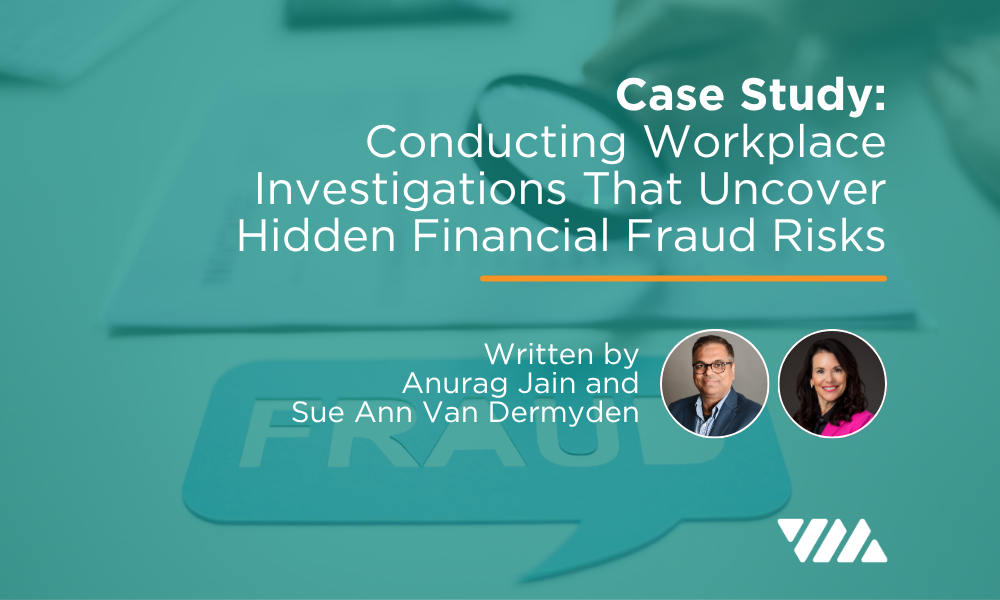
The VM Blog
In our blog, you’ll read about everything from workplace misconduct, report writing, and investigating stale complaints to interviewing non-employee witnesses. We hope these articles help you better understand the investigative law process, where common misunderstandings and hold-ups happen, and best practices we can all employ.
Anti-Corruption Report: Why Modern Corporations Need Investigative Memory
Many in the compliance space have been focused on the potential for technology to improve compliance program efficiency and effectiveness. This article examines four areas where the absence of investigative memory creates critical risks, the structural barriers to institutional memory and the practicalities of how to overcome those obstacles.
Case Study: Conducting Workplace Investigations That Uncover Hidden Financial Fraud Risks
In today's fast-paced corporate environment, what begins as a workplace grievance can sometimes uncover something equally or even more consequential. Consider this. You are a healthcare institution, employing 8,000 employees in the Midwest, generating between $50–100 million annually. You received a complaint from a 10-year employee, citing bullying and unfair treatment related to gender. You begin the investigation, and the story takes a twist. You find a deeply hidden financial fraud scheme.
Preventing Financial Fraud: How the Fraud Triangle Framework Can Protect Your Organization
Organizations lose approximately $3.6 billion annually to fraud, with median losses reaching $250,000 per incident. What's more concerning is that these schemes often go undetected for an average of 18 months, causing significant financial damage and lasting reputational harm.
The Need for Outside Investigators in Occupational Fraud: A Case Study on Misuse of the Corporate Uber Account
Recent statistics from the Association of Certified Fraud Examiners’ (ACFE) 2024 Report to the Nations highlight that organizations lose an estimated 5% of revenue annually to fraud. While internal controls and monitoring are essential first steps, engaging independent investigators can be crucial when potential fraud is detected. A recent investigation conducted by our firm helps illustrate why.
The Art of Investigating Occupational Fraud
Occupational fraud remains among the most damaging threats to organizational assets and reputation. According to the Association of Certified Fraud Examiners (ACFE)'s latest Report to the Nations, organizations lose an estimated 5 percent of their annual revenue to fraud, with the median loss exceeding $8.3 million in cases involving senior employees. Investigating these frauds is particularly challenging because the perpetrators are trusted insiders who understand control systems and can influence evidence and witnesses.





